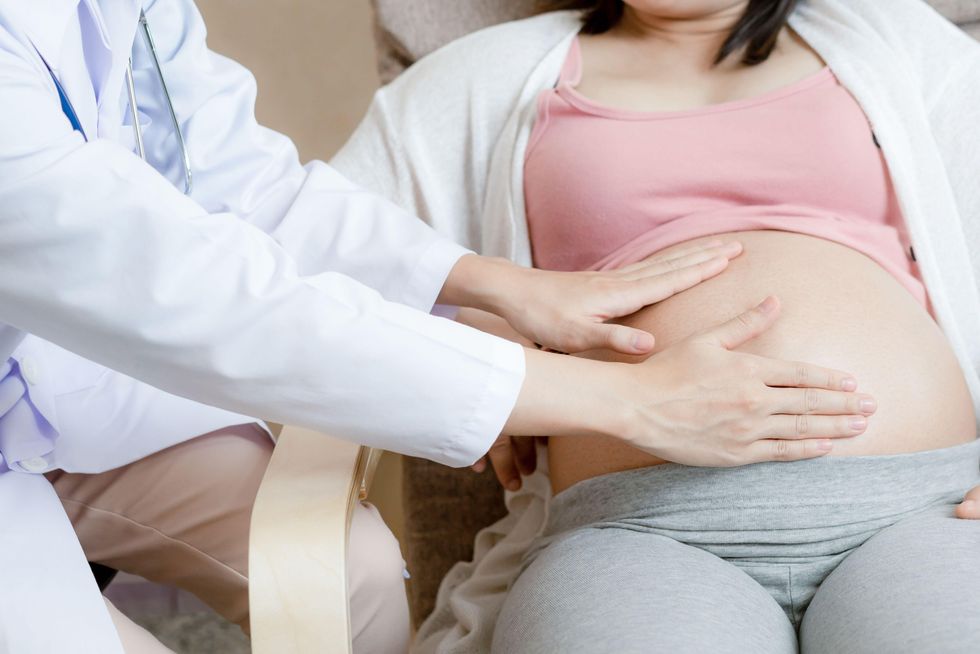Don't Miss
Most Read
Trending on GB News
The NHS has removed the word "women" from its main online health advice for those being treated for cervical, womb and ovarian cancers.
The website now states that cervical cancer is a "cancer that's found anywhere in the cervix" while womb cancer affects "the womb".
If patients wish to see the word "women" being used to talk about female illness, they must click further into the website.
The NHS website is often the first point of reference for people checking symptoms, and they previously displayed the word "women" to discuss female cancers.
In the past it said: "Cancer of the womb (uterine or endometrial cancer) is a common cancer that affects the female reproductive system. It's more common in women who have been through the menopause."
The NHS website has removed the term "women" from information about cervical, womb and ovarian cancers
Dominic Lipinski
Since the change, the NHS website states: "Most womb cancer usually starts in the lining of the womb (endometrium), this is also known as endometrial cancer."
Researchers in birth and childcare, criticised the move, outlining concerns regarding those with poor language skills, who may struggle to grasp terms stated in the NHS website.
According to The Times, they added how those with poor language skills already suffer from "worse health outcomes" and this move could potentially exacerbate the issue.
Lead author of a study into the importance of sexed language in birth and childcare, Dr Karleen Gribble of Western Sydney University, supported the move to "desexed language" labelling "well intentioned" but could put health at "risk".
Dr Gribble acknowledged how some aspects, including subheadings, used the word women, but added: "The very first thing needs to be who does this apply to – who needs to listen to the rest of this? Then you can give them information."
Other aspects of the NHS website which have undergone a change include referring to ovarian cancer as affecting "the two organs that store eggs needed to make babies".
Previously, the health service described ovarian cancer as: "Cancer of the ovaries is one of the most common types of cancer in women.
Researches have condemned the move as it could exacerbate health inequalities
PA Features Archive/Press Association Images
"The ovaries are a pair of small organs located low in the tummy that are connected to the womb and store a woman's supply of eggs.
"Ovarian cancer mainly affects women who have been through the menopause (usually over the age of 50), but it can sometimes affect younger women."
Charities and organisations who have raised awareness of this type of cancers, have not adopted this terminology.
Ovarian Cancer Action says: "Ovarian Cancer is the fifth most common cancer in women with around 7,000 new cases diagnosed in the UK each year."
A Government source told The Times this could be "harmful".
They stated: "All health advice is written carefully but it would not be right to erase either women or men from information relating to their biological sex, in a sincere attempt to accommodate those who have a different gender identity."
An NHS Digital Spokeswoman stated: 'It is not correct to say that there is no mention of women on the ovarian, womb and cervical cancer pages.
"We have updated the pages as part of our routine review of web pages to keep them in line with the best clinical evidence, and make them as helpful as possible to everyone who needs them."












